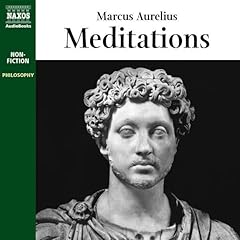
The Encheiridion and Discourses
No se pudo agregar al carrito
Add to Cart failed.
Error al Agregar a Lista de Deseos.
Error al eliminar de la lista de deseos.
Error al añadir a tu biblioteca
Error al seguir el podcast
Error al dejar de seguir el podcast
 Exclusivo para miembros Prime: ¿Nuevo en Audible? Obtén 2 audiolibros gratis con tu prueba.
Exclusivo para miembros Prime: ¿Nuevo en Audible? Obtén 2 audiolibros gratis con tu prueba.Compra ahora por $21.94
-
Narrado por:
-
Jonathan Booth
-
De:
-
Epictetus
Born into slavery in the first century AD, Epictetus was a leading Greek philosopher of the Stoic school. He spent most of his life in Rome before the Emperor Domitian banished all philosophers from the city in AD 93; his exile then took him to Nicopolis in Greece. His teachings were recorded by his pupil Arrian, who published both the Encheiridion and Discourses. The Discourses, which Arrian claimed to have taken down during lectures he attended, comprised eight books of which we have only four. The Encheiridion (Handbook) is a distillation of the main ideas found in the Discourses. Throughout these works is the strong sense of Stoic philosophy, with its emphasis on self-examination and self-knowledge, being presented as a practical way of living rather than a theoretical code.
Download the accompanying reference guide.Public Domain (P)2020 Naxos AudioBooksLos oyentes también disfrutaron:




















Las personas que vieron esto también vieron:

A refreshing book if you are able to really break down that context and apply to the current modern Era. Boring and redundant otherwise if you cannot.
I would 10/10 recommend in today’s society.
Refreshing
Se ha producido un error. Vuelve a intentarlo dentro de unos minutos.


